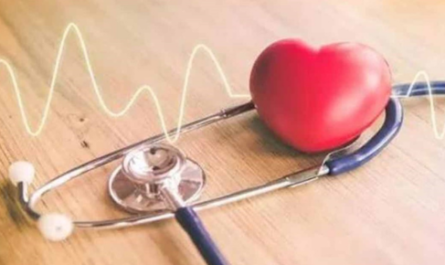When it comes to healthcare, choosing the right specialist is crucial for ensuring the best treatment and recovery. In the realm of bone, joint, and muscle care, an orthopedic doctor is a key player. If you’re in or around Nelamangala and seeking medical attention for issues related to bones or joints, understanding the role of an orthopedic doctor is vital. Here’s everything you need to know.
What is Orthopedics?
Orthopedics is a branch of medicine that focuses on the diagnosis, treatment, prevention, and rehabilitation of conditions related to the musculoskeletal system. orthopedic doctor Nelamangala This system includes bones, joints, muscles, ligaments, tendons, and nerves. If you have injuries, congenital conditions, or diseases affecting these areas, consulting an orthopedic doctor is the first step toward recovery.
Common Conditions Treated by an Orthopedic Doctor
Orthopedic doctors treat a wide range of conditions. Some of the most common issues include:
- Arthritis: This is the inflammation of joints, causing pain and stiffness, often worsening with age.
- Fractures: Broken bones due to accidents or falls.
- Back Pain: Chronic pain in the spine, which can stem from a variety of causes.
- Sports Injuries: Including sprains, strains, and torn ligaments.
- Carpal Tunnel Syndrome: A condition affecting the hands and wrists, often caused by repetitive motion.
Why You Might Need an Orthopedic Doctor
You might be wondering when is the right time to consult an orthopedic doctor. If you’re experiencing:
- Persistent pain in your bones or joints
- Limited mobility or range of motion
- Difficulty performing everyday activities due to discomfort
- Symptoms that worsen over time
It’s time to seek professional help. Early diagnosis and treatment can often prevent further complications and speed up recovery.
What to Expect During Your Visit
If you’re visiting an orthopedic doctor in Nelamangala for the first time, here’s what you can expect:
- Medical History Review: Your doctor will ask about your symptoms, medical history, and any past injuries or treatments.
- Physical Examination: The doctor will check your affected area for tenderness, swelling, or other abnormalities.
- Diagnostic Tests: You may need X-rays, MRI scans, or blood tests to provide more information about your condition.
Treatment Options
Depending on the diagnosis, an orthopedic doctor can recommend various treatment options:
- Medication: Pain relievers and anti-inflammatory drugs are often prescribed.
- Physical Therapy: Rehabilitation exercises to restore strength and flexibility.
- Surgery: In severe cases, surgery might be required to repair damaged tissues or bones.
- Lifestyle Modifications: The doctor might suggest changes in your diet, exercise, or daily activities to prevent further complications.
Specialized Orthopedic Care
Many orthopedic doctors specialize in particular areas of the body or types of injuries. Some common specialties include:
- Spine Orthopedics: For conditions affecting the back and spine.
- Sports Medicine: Focused on athletes and sports-related injuries.
- Pediatric Orthopedics: Addressing musculoskeletal problems in children.
- Joint Replacement: Specializing in procedures like knee or hip replacements.
The Importance of Early Diagnosis
Catching an orthopedic condition early can make a world of difference in treatment outcomes. Delaying care can lead to worsening symptoms and prolonged recovery times. Regular check-ups, especially if you have risk factors like a history of injury or arthritis in your family, can help detect problems before they become serious.
How to Choose the Right Orthopedic Doctor
Finding the right orthopedic doctor in Nelamangala can be overwhelming, but here are some tips to help you make the best decision:
- Qualifications: Ensure the doctor is board-certified and has specialized training in orthopedics.
- Experience: Look for a doctor with years of experience, especially in treating conditions similar to yours.
- Reputation: Read reviews and ask for recommendations from friends or family.
- Comfort Level: Choose a doctor who listens to your concerns and makes you feel at ease.
Recovery and Rehabilitation
After receiving treatment, your recovery is just as important as the initial care. Orthopedic doctors often work with physical therapists to ensure patients regain full mobility and strength. Depending on the severity of your condition, rehabilitation may involve:
- Regular physical therapy sessions
- Home exercises to maintain flexibility
- Gradual return to daily activities or sports
Preventing Orthopedic Injuries
While not all orthopedic conditions can be prevented, there are steps you can take to reduce the risk:
- Stay Active: Regular exercise strengthens muscles and joints, making them less prone to injury.
- Maintain a Healthy Weight: Excess weight puts added pressure on joints, especially the knees and hips.
- Use Proper Techniques: Whether exercising or lifting heavy objects, always use the correct form to avoid strain.
- Wear Appropriate Footwear: Supportive shoes can help prevent foot and ankle injuries, especially during physical activity.
How Technology is Changing Orthopedics
Advances in medical technology have transformed orthopedic care in recent years. Children Hospital in Nelamangala Some exciting developments include:
- Minimally Invasive Surgery: Reduces recovery time and the risk of complications.
- Robotic-Assisted Surgery: Improves precision during joint replacement procedures.
- 3D Printing: Used to create custom implants and prosthetics tailored to individual patients.
Orthopedics and Aging
As we age, our bones and joints naturally become weaker. Conditions like osteoporosis and arthritis are common in older adults. Regular visits to an orthopedic doctor can help manage age-related issues, ensuring that you maintain mobility and independence.
Conclusion
If you’re facing issues related to bones, joints, or muscles, consulting an orthopedic doctor in Nelamangala is a wise decision. With the right diagnosis and treatment plan, you can reduce pain, improve mobility, and get back to your daily activities. Remember, early intervention is key to successful outcomes, so don’t hesitate to seek professional help if you’re experiencing any symptoms.



